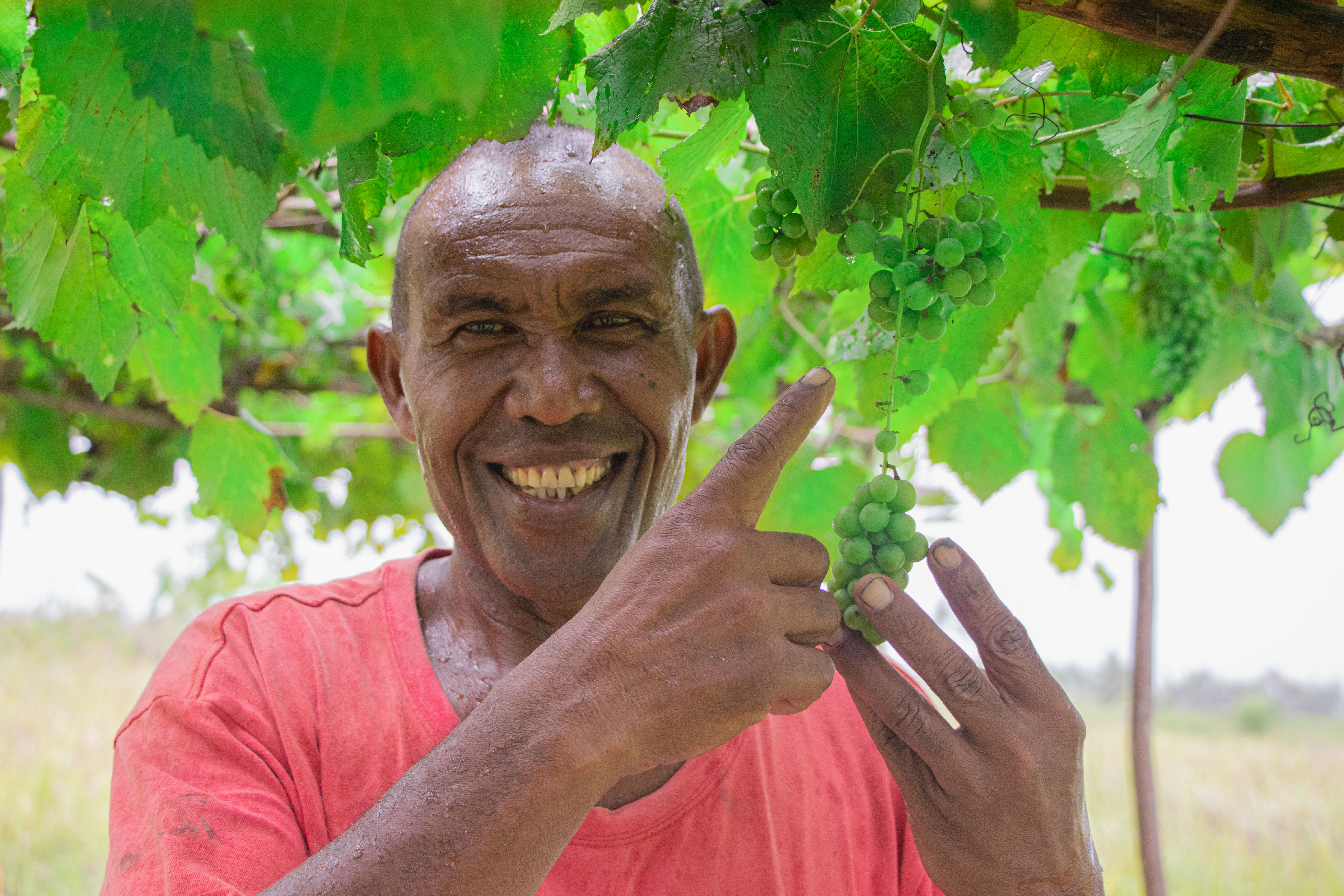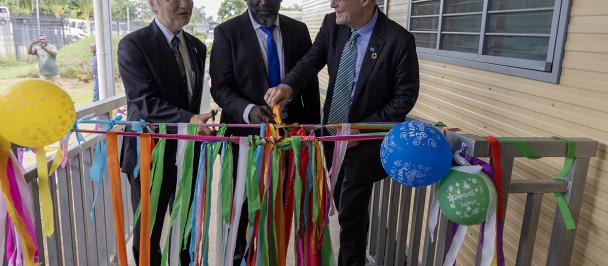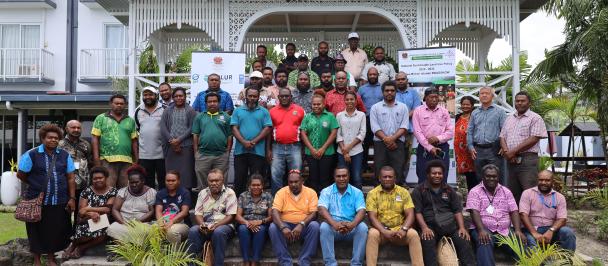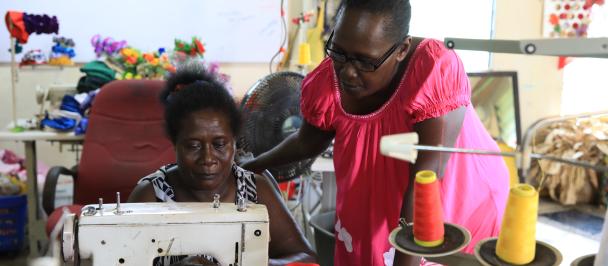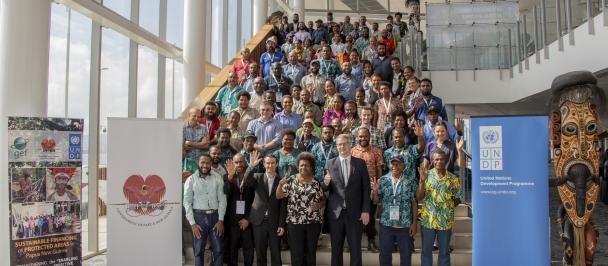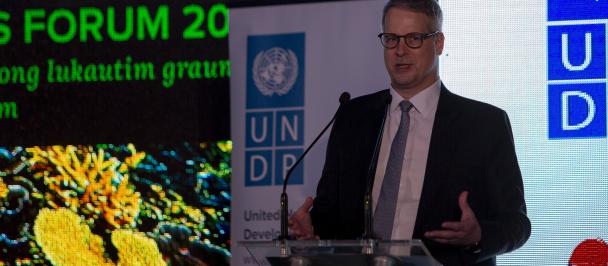"Farming is one of my greatest interests in life” - Pastor Aihi Ikupu of Central Province. Photo: Seru Kepa /UNDP Papua New Guinea
Papua New Guinea's National Adaptation Plan is a recipe that can help farmers meet climate challenges and increase food security. UNDP toured Pastor Ikupu’s farm in Central province to find out how.
Pastor Aihi Ikupu lives in Hisiu, a small village dotted along the Hiritano Highway in Central Province 100km North-West of Port Moresby, the capital city of Papua New Guinea. A subsistence farmer, his two hectares of land produce crops to support his wife and five children, and the community of Kairiku district.
A leader of his local Christian Life Church, Pastor Ikupu faces many climate-related challenges that hinder his harvests. But he is learning to adapt. Papua New Guinea’s National Adaptation Plan, being developed with UNDP's assistance, is specifically focused on agriculture, health, transport and infrastructure to respond to challenging climate scenarios.
Recognized as an acute challenge for Papua New Guinea, UNDP is supporting the Government in their commitment to mainstream climate action in policy planning and delivery. The Advancing PNG’s National Adaptation project supports interventions to address climate change adaptation, particularly in rural areas frequently exposed to external shocks.
Pastor Ikupu shows how agricultural farmers are affected by climate change and how some of his adaptive solutions help to ensure the country’s food producers can adjust to climate impacts.
 “I use my small-scale irrigation system in drought". Photo: Seru Kepa/ UNDP Papua New Guinea “I use my small-scale irrigation system in drought". Photo: Seru Kepa/ UNDP Papua New Guinea |
The pastor says rising temperatures is a major challenge that reduces the yield of his produce, encouraging weed growth and a rise in pests that damage his crops. He also sees changes in precipitation patterns. This increases short-term crop failures and decreases long-term production.
Pastor Ikupu farm's produce includes grapes and taro, however he is also well known for his rice production.
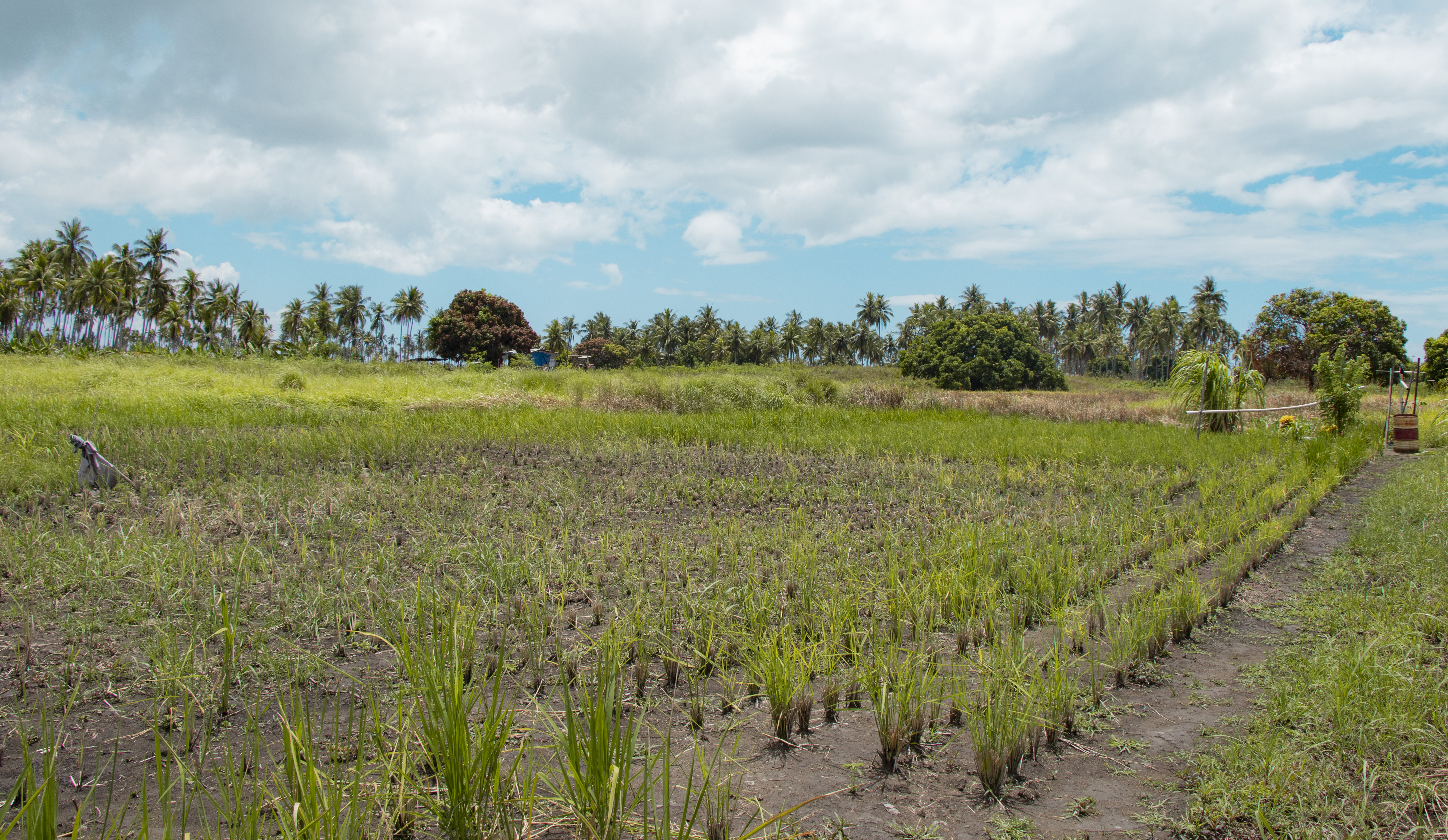 Pastor Ikupu is now well known for his rice production. Photo: Seru Kepa / UNDP Papua New Guinea Pastor Ikupu is now well known for his rice production. Photo: Seru Kepa / UNDP Papua New Guinea |
“In the beginning, I did not generate a large harvest. But after the Department of Agriculture and Livestock visited my farm, they could see I had established rice and other crops, so they supported me to travel to China with them to acquire new methods and skills in rice farming on a larger scale,” he said.
Pastor Ikupu was part of a 19-member, two-week delegation to Guangzhou, in Guangdong province, where he was able to visit rice fields to broaden his knowledge on rice farming under the China-Pacific Agriculture Technology Training Programme.
He learned new farming techniques to utilize when adapting to climate change - such as integrating livestock with rice production, improving soil quality and implementing effective irrigation practices.
The pastor was also selected by the Fresh Produce Development Agency as a village extension worker - a voluntary model farmer trained to help build capacities of local farmers to adapt to climate change.
“During the long drought periods I rely on mulching, meaning that I don’t weed around my crops, I let the weeds grow so they provide a canopy for shade, protecting the rice and other produce from sunlight,” said Pastor Ikupu, who constructed a small-scale irrigation system to water crops daily.
In heavy rainfall, Pastor Ikupu uses flooding to his advantage as natural irrigation. He also adds chicken manure as fertilizer to flood water to produce richer crop yields. “The flooding is beneficial, we don’t need to pump water into the soil, we can just let nature run its course.”
The United Nations Development Programme, together with the Climate Change Development Authority, is developing the National Adaptation Plan for Papua New Guinea. The National Adaptation Plan aims to enhance adaptive capacity, strengthen resilience and reduce vulnerability to climate change.

 Locations
Locations